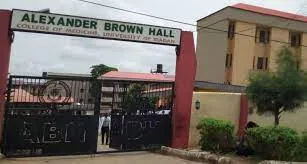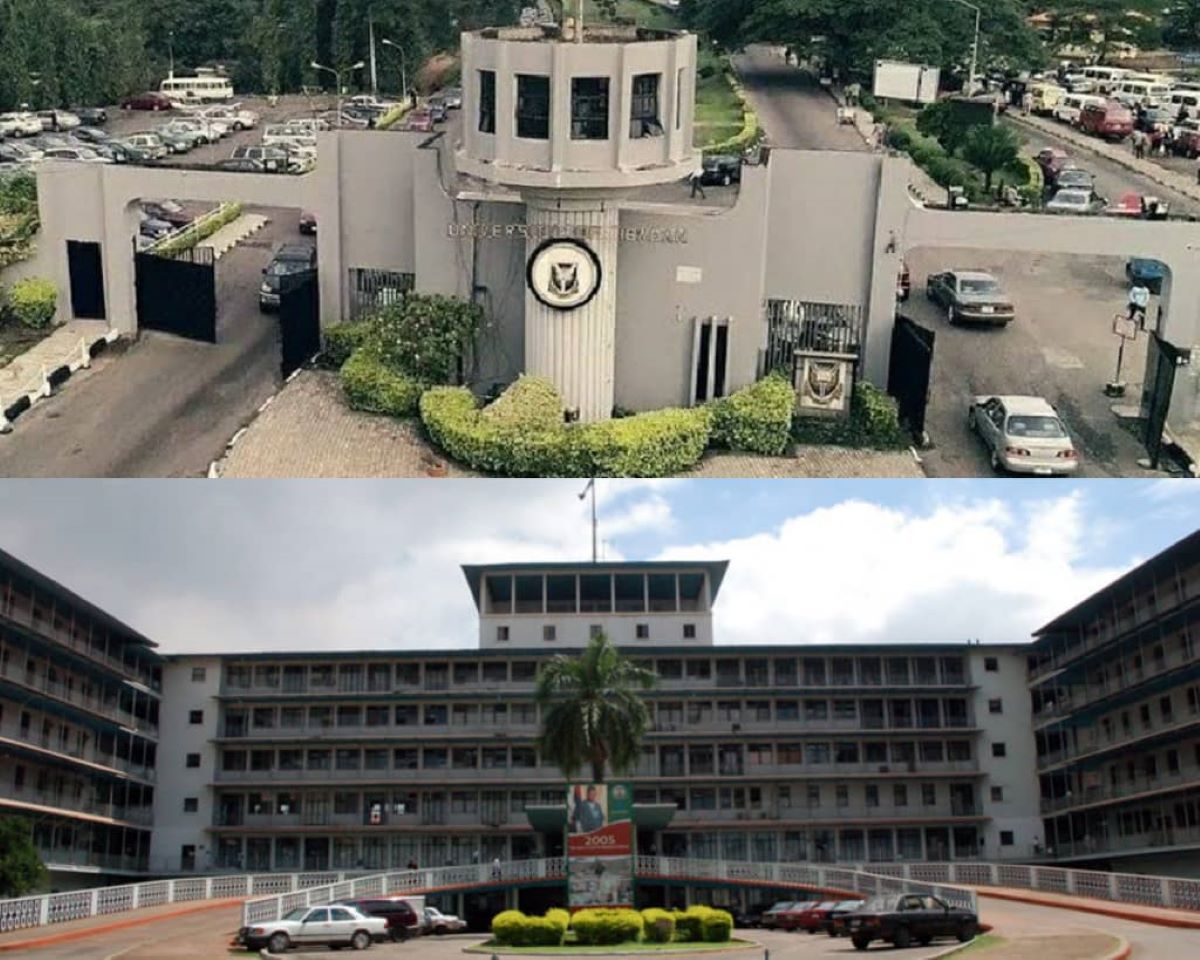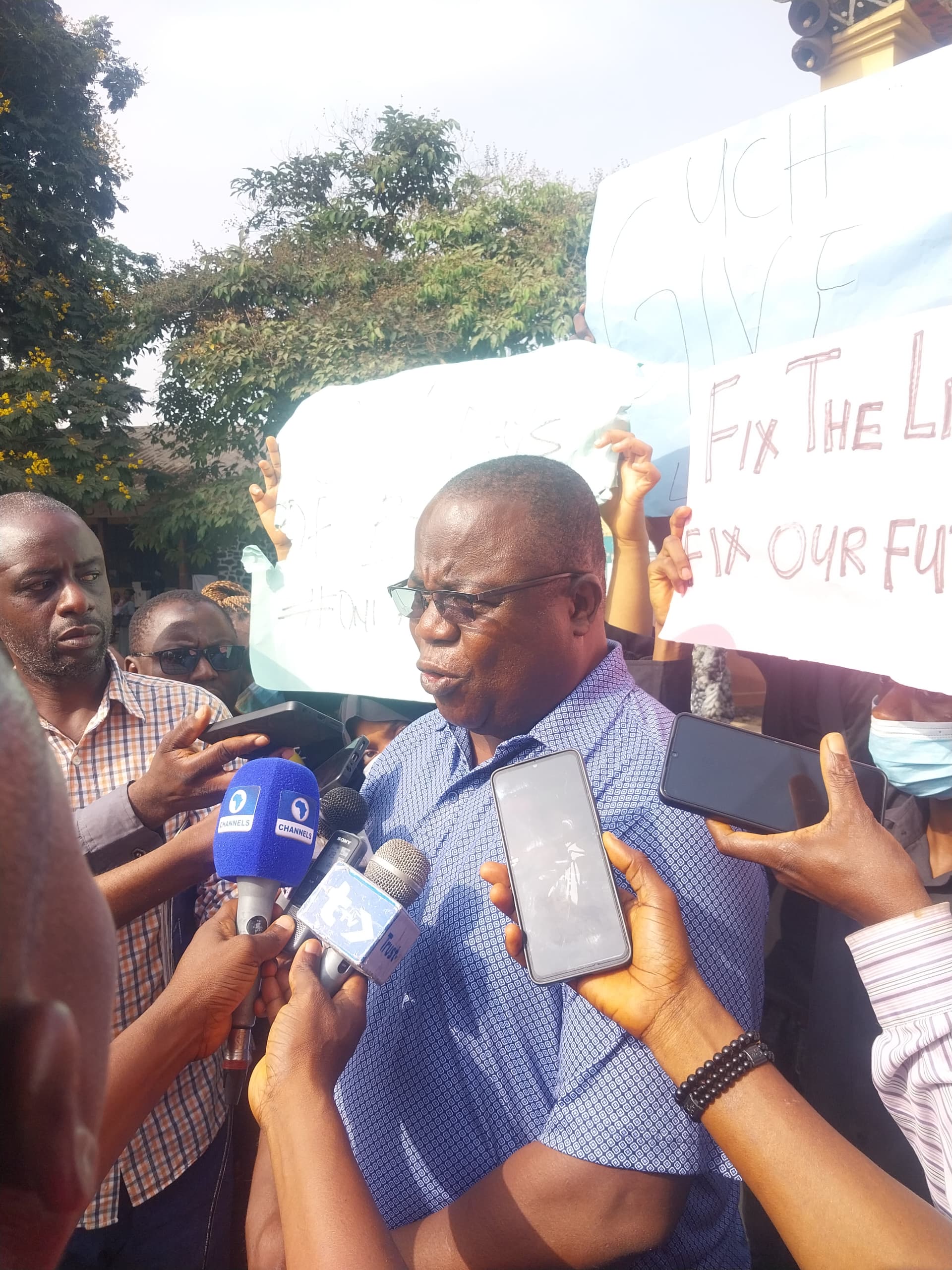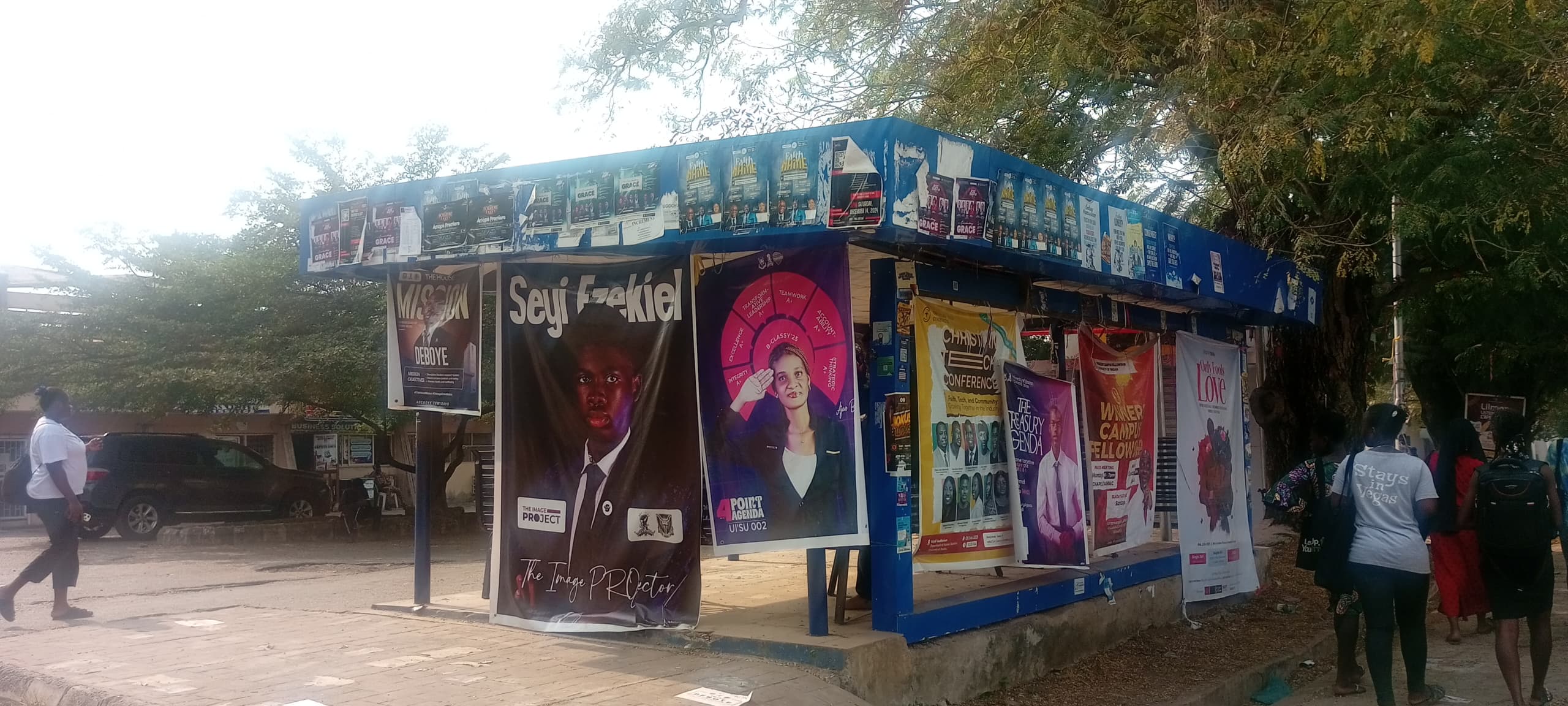Time Stolen, Futures Delayed: Inside the Fallout of the MDCAN Strike at UCH
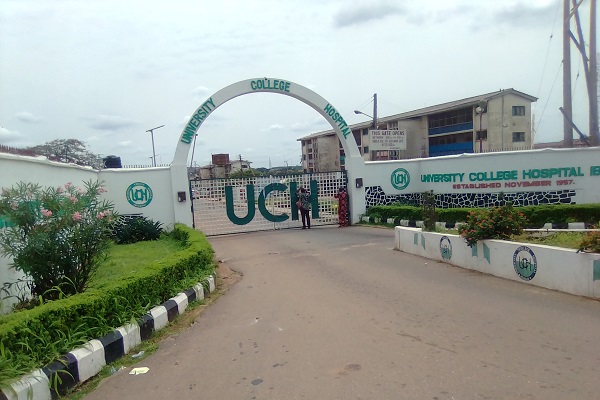
On a quiet December morning in 2024, Tobe*, a medical student at the University College Hospital (UCH) in the 2k23 class, woke up anticipating another stressful day in clinical rotations.
Instead, she opened her phone to find a WhatsApp message: “all postings suspended, indefinitely.” And that was what most people got in the form of a notice that a strike was about to begin.
“In summary, it brought my daily academic routine to a halt,” she said before adding, “I was barely reading; I was not having clinical exposure, basically just staying at home and waiting.” Like many of her peers, what was meant to be a crucial phase of hands-on clinical training turned into an extended period of stagnation.
Between December 2024 and April 2025, the Medical and Dental Consultants Association of Nigeria, University College Hospital, Ibadan (MDCAN-UCH) embarked on an academic strike, protesting unresolved issues including poor remuneration and working conditions. As consultants withdrew their services, academic and clinical training at the University College Hospital (UCH) came to a standstill, affecting hundreds of students from the 300 to 600 levels.
This article explores the strike’s far-reaching effects. How it disrupted the structure of medical training at UCH and upended the futures of four academic classes. Through the students’ own words, we examine the academic setbacks, emotional toll, and growing uncertainties faced by Nigeria’s next generation of doctors.
In December 2024, the Medical and Dental Consultants Association of Nigeria (MDCAN) initiated a regional strike within the South-West to protest the non-implementation of the Consolidated Medical Salary Structure (CONMESS) and other unresolved issues concerning consultant welfare. You can read more about it here. The strike lasted more than four months, ending in April 2025. At the University College Hospital (UCH), where consultants are the backbone of clinical teaching, the impact on medical education for students, the implications were immediate and destabilizing. Clinical postings were suspended indefinitely, ward-based teaching vanished, and students were left waiting without direction or a defined timeline for return.
There’s also the broader issue of how the strike was handled at the governmental level. MDCAN’s demands, particularly the full implementation of the Consolidated Medical Salary Structure (CONMESS), which determines the remuneration of medical consultants in Nigeria, had been mounting for some time. Yet, despite repeated warnings and stalled negotiations, the federal government failed to act decisively until the strike had already crippled both healthcare delivery and medical education. The fallout wasn’t limited to one institution; while UCH bore the brunt, the disruption rippled across four academic classes and extended to other medical schools in the southwest, including Obafemi Awolowo University (OAU), the University of Lagos (UNILAG), and Ladoke Akintola University of Technology (LAUTECH), with each affected at a critical, often irreplaceable, stage of training.
For the 2k25 class, the strike hit just as they were preparing to enter clinical school, which could be defined as a particularly important and formative transition in any medical student’s journey. Oluwatobiloba, a member of the class, captured the inertia it introduced into his routine. “Well, my reading has been reduced,” he said, a statement implying the collapse of a studying pattern without the structure of scheduled postings or supervised teaching. It would be important to note that due to this delay caused by the strike action, there are currently four classes in the clinical side of the college, a weird occurrence that has also created and worsened existing problems regarding accommodation of all clinical students in the Alexander Brown Hall (ABH).
Just ahead of them, the 2k24 class was scheduled to take the pivotal second MB examination sometime around June/July before the strike derailed everything. Dami*, a member of the class, described the psychological toll of just waiting for resumption. “I just got tired of the course,” she said. “Like I didn’t want to go anymore.” She spoke openly of the exhaustion from maintaining readiness with no clear exam date in sight. “It interrupted my flow of reading, attending clinics, studying towards my exam, and my ability to plan ahead,” she explained. For students like Dami, the emotional strain wasn’t simply about academic delay; it was about being trapped in an unresolved state of preparation.
Meanwhile, students in the 2K23 class had anticipated completing their clinical postings and graduating at an already delayed but still already set time. Instead, the strike did more than just delay their milestones; it dismantled them. Tobe captured the paralysis of the moment: “The most frustrating part was not being able to make proper, definite plans because we did not know when it would end, and at any point it could have been called off, and we would have had to dump our plans and go back to school.” The uncertainty turned planning into a gamble, with students unable to commit: not to exams, not to travel, not even to rest. As if those weren’t enough, she described the additional pressure that came once activities resumed: “And the second most frustrating part was being expected to resume and still perform the same way, as if there was no interruption in our schooling.” It was, in effect, a disruption followed by denial, and students were left to bridge the gap alone.
Chidinma, also in that same class, echoed the collective frustration: “I don’t even know when I’ll write my exams or proceed to the next class.” Her words reflect the helplessness that many of her coursemates continue to navigate; not just the delay, but the confusion that followed. In fact, the aftermath of the strike brought so much uncertainty around academic placements that this writer has resorted to using “2k2X” to denote classes, rather than traditional labels like 400L or 500L. Oluwatobiloba even admitted how the delay made him question his academic identity entirely. “Well, I started telling people that I’m still a preclinical student,” He said.
And at the top of the academic ladder sat the 2K21 class, who were poised to graduate around this time this year. As the final-year class, they risk missing housemanship slots, residency timelines, and other tightly coordinated postgraduate programs. With clinical requirements incomplete and time running short, these students bear the heaviest consequences of systemic delay. Their situation reflects the saddest tale of the strike: those closest to becoming doctors were instead left waiting on the sidelines.
But moving beyond academic calendars, the strike also created deep uncertainties about the long-term careers of medical students. For a profession defined by structure and sequencing, the strike scattered those milestones; residency, housemanship, and NYSC—into a fog of indefinite delay.
This delay has far-reaching effects on the COMUI student populace. For example, Dami reflected on how the strike forced her to reconsider her professional future. “Well, I’ve decided that my plan A or even plan B is no longer to stay in the country,” she wrote. What began as frustration has hardened into a decision to leave. Her sentiment reflects a growing disillusionment among students who feel the system cannot offer the stability or support they need to thrive. The idea of building a career within the Nigerian healthcare system now comes with caveats, or not at all.
Tobe also shared how the strike forced her to abandon her earlier plan of taking time off after graduation. “It definitely has influenced it,” she said. “While I was going to take one or two gap years after graduation to figure out things and try to immigrate, it has made me decide to start residency as soon as possible… and still try to find a way to leave as soon as I can because I don’t want any more time to waste.” Her shift from exploration to urgency shows us a new reality: for many students, the dream of staying has quietly given way to the need to leave.
And it’s not really hard to figure out why this is so, because this strike did not just pause education; it interrupted the timelines students had planned for years and left everyone wondering if they could still build their futures in a country where their education could be indefinitely suspended at any moment. Because if you look at it, since most students in the college gained admission, they have been subject to several strike actions, such that students jokingly refer to their timeline of study as six years plus ‘x,’ with ‘x’ referring to time lost due to strike actions.
This normalization has far-reaching consequences. While students weather these disruptions year after year, many quietly plot their exit from the system entirely. Several recent studies confirm what is becoming increasingly clear: Nigeria is raising a generation of doctors who no longer see a future for themselves within the country’s healthcare infrastructure.
A 2023 study published in BMC Medical Education revealed that 81.1% of final-year students in health-related disciplines at Obafemi Awolowo University intended to migrate abroad after graduation. Their top motivations included the desire for specialist training and a general perception that practicing in Nigeria was professionally limiting and emotionally draining. The same study found that over 53.7% of respondents had an unfavorable attitude toward remaining in the country post-training.
These aren’t just numbers; they represent an accelerating brain drain. Each disruption, each unresolved strike, adds another layer of disillusionment and nudges more students toward the exit. The long-term implication is stark: Nigeria may soon find itself training doctors for export rather than for national service.
This recently concluded MDCAN strike has once again exposed the fragility of the system. And while medical students protest, adapt, or endure, what remains is the unmistakable need for reform. There must be institutional accountability, not just from the federal government but also from teaching hospitals and universities tasked with protecting students’ education.
The MDCAN strike may have ended, but for medical students across the University of Ibadan, its aftermath lingers in every missed posting, every postponed exam, and every quiet moment of uncertainty. Over four months were lost, not just from the academic calendar, but from the lives of students who spent them waiting in limbo, grappling with disrupted routines, emotional exhaustion, and an unraveling sense of direction.
*not real names
